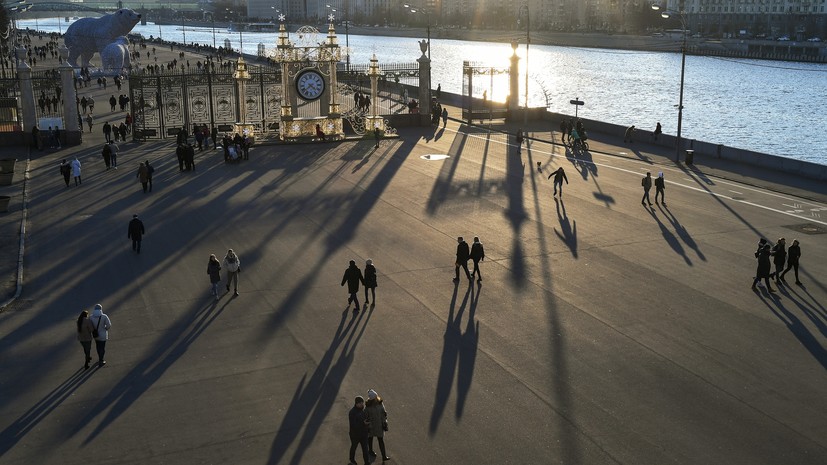At the beginning of the second and third decades of April, Moscow can expect "Arctic invasions," the Phobos weather center said in a statement.
"In April, the return of cold weather is already not as powerful as in March, but, nevertheless, it happens quite often. For example, in Moscow, serious Arctic invasions are expected at the beginning of the second and third decades of the month, "the publication says.
At the same time, it is specified that the cooling during these periods eliminates the heat of other days, so the temperature regime in the capital in the second spring month will be within the climatic norm.
In an interview with RT, the leading specialist of Phobos, Mikhail Leus, noted that in April "there will be a cooling, and not just one."
"April will be very similar to March in this regard, the weather will be unstable and often changing. The beginning of the month will be quite warm," the forecaster said.
According to him, there will be heat waves between cold snaps.
"Based on these moments (alternation of heat and cold), according to our forecasts, it turns out that in the capital region, April in its weather characteristics, in its temperature characteristics, will be close to the climatic norm, or slightly higher," Leus believes.
At the same time, he said that precipitation is expected to slightly exceed the climatic norm.
- RIA Novosti
- © Kirill Kallinikov
Anatoly Tsygankov, deputy head of the Roshydromet situation center, in turn, believes that the capital region is "at a crossroads between cold and warm air."
In an interview with RT, the forecaster noted that the past March was warm, the snow melted about two weeks ahead of schedule.
"There is no need to complain that it is cold. As for the cold, everything is relative. So far, the trend is such that we continue to go above the climatic norm. There will be small depressions at night. We have frosts in May as well. Everything can happen," Tsygankov said.
According to him, from the available forecast for April it follows that the temperature this month will be about normal.
Snow melt and car tire change issues
At the end of March, the head of the forecast center "Meteo" Alexander Shuvalov commented on the process of melting snow in Moscow.
In an interview with the newspaper "Izvestia", he noted that this process is ahead of schedule, since the current air temperature corresponds to the 20th of April. In the material published on March 24, the forecaster said that over the previous two days at the VDNKh weather station, the height of the snow cover decreased by 10 cm - from 22 to 12 cm.
At the same time, forecasters are of the opinion that it is too early for residents of the capital region to change winter tires on cars for summer ones. This point of view, in particular, at the end of March was expressed by the leading specialist of the weather center "Phobos" Evgeny Tishkovets.
According to him, the relapses of the cold observed in the last week of March will not be the last.
- RIA Novosti
- © Evgeny Odinokov
"In the first decade of April, the weather will again behave very unstable, with a high probability of lowering the temperature to near zero values or even with weak frosts. It is too early to talk about whether it is worth "changing shoes", "RIA Novosti quoted him as saying.
According to the forecaster, to make this decision, it is necessary to wait for the moment at least until the end of the first decade of April.
In Moscow, they began to wash the facades and plinths of buildings
Meanwhile, city utilities began washing the facades and plinths of buildings after winter.
"First of all, we clean after the winter the houses facing the central streets and departure highways," said Deputy Mayor of Moscow Pyotr Biryukov.
As noted in the Telegram channel "Municipal Economy of Moscow", the procedure for washing each specific facade depends on the degree of pollution. In particular, objects near roads with heavy traffic are cleaned around the perimeter, houses and buildings located inside the quarters are partially cleaned.
In the process of washing, towers, hydrants and other special equipment are used. In addition, detergents are used in particularly polluted areas. To clean high-rise buildings, the city authorities attract industrial climbers.

